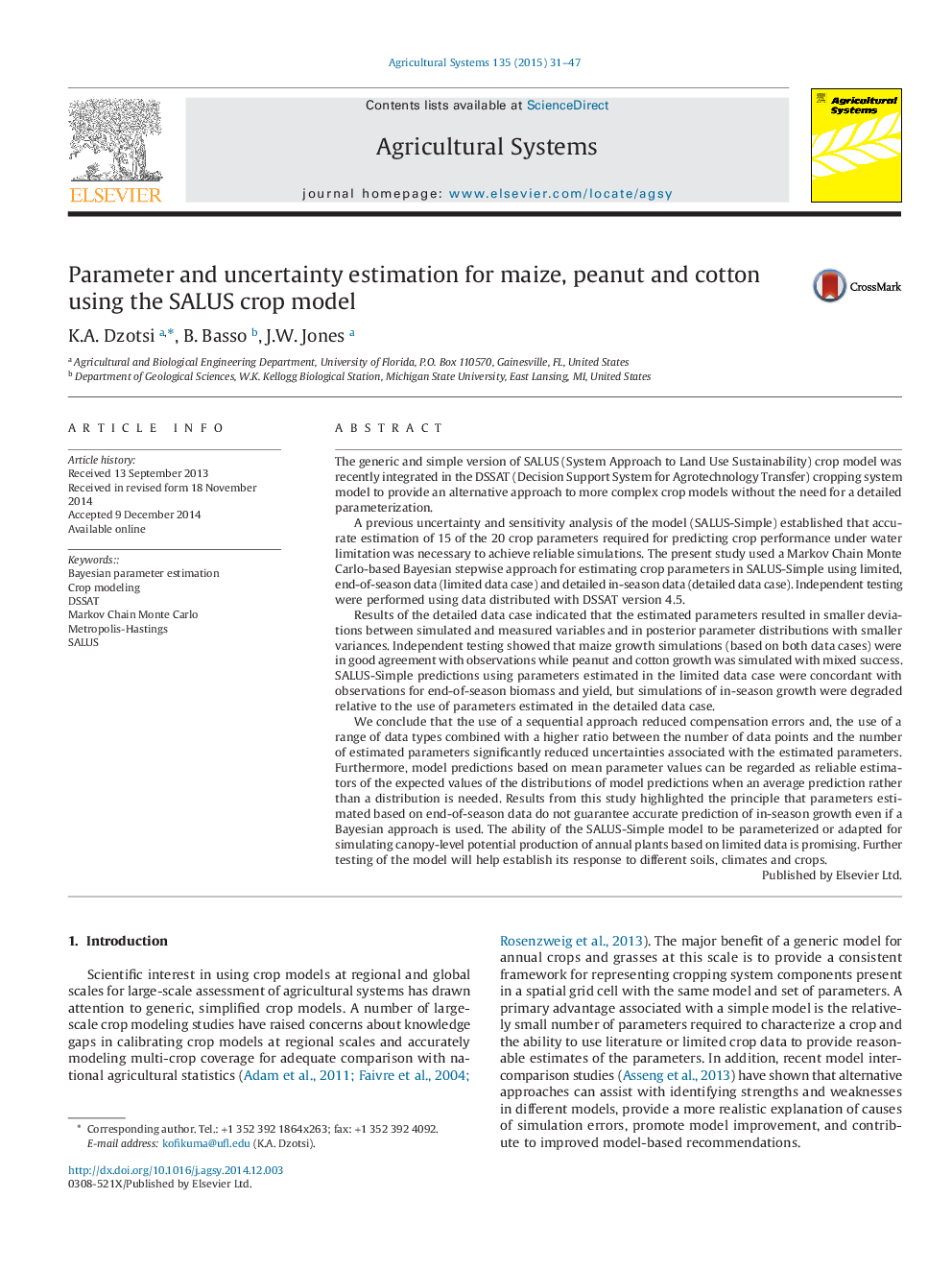| Article ID | Journal | Published Year | Pages | File Type |
|---|---|---|---|---|
| 6368512 | Agricultural Systems | 2015 | 17 Pages |
Abstract
We conclude that the use of a sequential approach reduced compensation errors and, the use of a range of data types combined with a higher ratio between the number of data points and the number of estimated parameters significantly reduced uncertainties associated with the estimated parameters. Furthermore, model predictions based on mean parameter values can be regarded as reliable estimators of the expected values of the distributions of model predictions when an average prediction rather than a distribution is needed. Results from this study highlighted the principle that parameters estimated based on end-of-season data do not guarantee accurate prediction of in-season growth even if a Bayesian approach is used. The ability of the SALUS-Simple model to be parameterized or adapted for simulating canopy-level potential production of annual plants based on limited data is promising. Further testing of the model will help establish its response to different soils, climates and crops.
Related Topics
Life Sciences
Agricultural and Biological Sciences
Agricultural and Biological Sciences (General)
Authors
K.A. Dzotsi, B. Basso, J.W. Jones,
